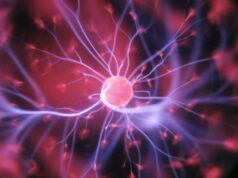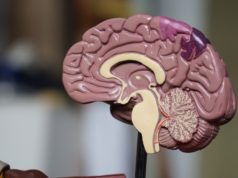 Johns Hopkins Medicine researchers say they have new evidence from mouse experiments that manipulating certain nerve cells, or the genes that control them, with neuromodulation might trigger the formation of new heart muscle cells and restore heart function after heart attacks and other cardiac disorders.
Johns Hopkins Medicine researchers say they have new evidence from mouse experiments that manipulating certain nerve cells, or the genes that control them, with neuromodulation might trigger the formation of new heart muscle cells and restore heart function after heart attacks and other cardiac disorders.
More specifically, they believe the results of their study—which are published in Science Advances—shed new light on how some neurons regulate the number of heart muscle cells.
“Our study sought to examine the role of so-called sympathetic neurons on heart development after birth, and what we found is that by manipulating them there could be tremendous potential for regulating the total number of muscle cells in the heart, even after birth,” said the study’s lead author Emmanouil Tampakakis (Johns Hopkins University School of Medicine, Baltimore, USA).
The research team created a genetically modified mouse model by blocking sympathetic heart neurons in developing mouse embryos and analysed the drivers of heart muscle cell proliferation through the first two weeks after birth.
They found a significant decrease in the activity of a pair of genes—the period 1 and period 2 genes—already known to control the circadian cycle. And, after removing those two circadian genes in mouse embryos, the researchers saw increased neonatal heart size and a larger number of heart muscle cells by up to 10%. This suggests that the effect of sympathetic nerves on heart muscle cells is likely mediated through these two circadian or ‘clock’ genes.
People who survive a heart attack can lose up to one billion heart muscle cells, and Tampakakis stated that there is scientific evidence that hearts tend to recover faster after an attack when the total number of cells to begin with is higher. By manipulating sympathetic nerves and clock genes via neuromodulation, researchers believe the heart could be made to respond to injury much better.
“Neuromodulation is a pretty new concept in cardiology, and we believe these are the first reports that associate clock genes with new growth of heart muscle cells,” said Chulan Kwon (Johns Hopkins University School of Medicine, Baltimore, USA). “Our study, maybe for the first time, shows what is happening if you block the supply of nerves to the heart, and provides new insights for developing neuromodulation strategies for cardiac regeneration.”
Tampakakis added that his team is working on further experiments to characterise the different groups of neurons that supply the heart, and demonstrate how those nerves develop and adjust over time and after heart injury.













